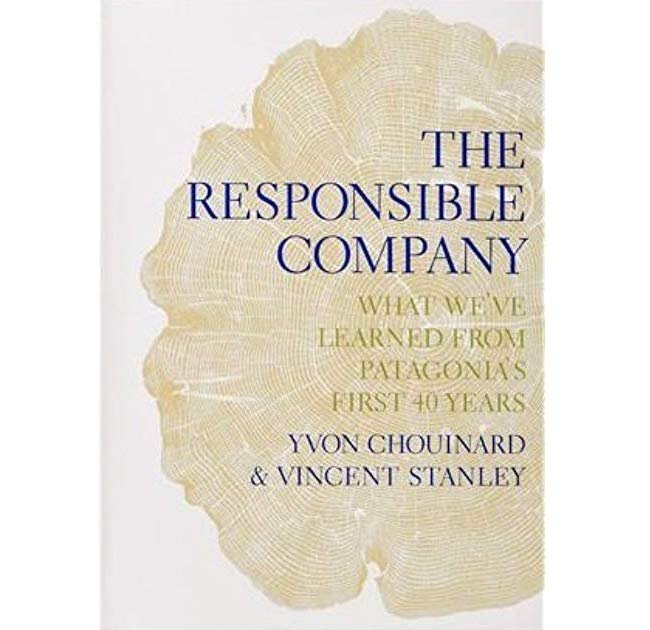“The Responsible Company” Book by Yvon Chouinard and Vincent Stanley
Will Ross, November 30, 2015

Following the success of his first book, Let My People Go Surfing, Yvon Chouinard joined up with Patagonia’s head of marketing, Vincent Stanley, to offer another refreshing perspective on business practice. A sage, tempered title came from this collaboration: The Responsible Company: What We’ve Learned from Patagonia’s First 40 Years. In the book, the California-based environmentalists provide an analysis of how Patagonia has come to understand its role in business ethics, while offering a comprehensive “how-to” list of ways other leaders can form more socially and environmentally accountable companies.
From the outset, the book outlines in compelling Yvon-like straightforwardness the status of the environment and humankind’s relationship with it. From the opening paragraph, Chouinard and Stanley prompt the reader to consider how the denigration of nature is tied into our neglect of “our deepest human needs.” As a response, the authors are optimistic yet quick to admit that humans have retained their most useful assets as “… ingenious, adaptive, clever… We now need to more fully engage these gifts to make economic life more socially and environmentally responsible, and less destructive to the nature and the commons that sustain us.”
The book continues by telling the story of Patagonia, and how the Ventura-based brand was not meant to be a “risk-taking, environment-obsessed, navel-gazing company but an easy-to-milk cash cow.” From this point of departure, Chouinard and Stanley explain how a revered company became more responsible as it aged, looking beyond its immediate business to find allies at competitive but co-operative companies. The Sustainable Apparel Coalition is the most clear manifestation of this willingness to cross the room and work with organisation that only retrospectively adopted reponsible business practices.

Referring to Patagonia’s Footprint Chronicles web app, the argument turns to the exploitation of natural resources in a regular supply chain. In pointing out that “we have borrowed from nature what we can’t pay back,” Chouinard and Stanley highlight how “Every piece of crap…contains within it something of the priceless: applied human intelligence, for one, natural capital for another.” Instead of wasting our brains and natural resources on wasteful, disposable products, the executives vouch for making less by delivering higher quality, long-lasting garments that mitigate their social and environmental cost.
As well as raising the economic fact that natural resources are increasing in price, The Responsible Company addresses questions about supply chain and the need for large corporations to reclaim meaningful control over extended procurement and distribution sales channels. Chouinard and Stanley bridge these two principles in reference to their “cotton odyssey” that prompted the reconfiguration of their supply chain following the discovery of formaldehyde in certain cotton-based products in the early 1990s.
A series of checklists completes the practical theme of The Responsible Company, compiled to give companies step-by-step advice on how to make there organisations more socially and environmentally defensible. Though Chouinard denies the possibility that any apparel company can become truly sustainable from an environmental perspective, he and Stanley offer credibility to those companies that at least aspire to move in this direction.
“The Responsible Company” can be purchased directly at patagonia.com Watch the authors present the ideas of the book in this 90-minute presentation at Yale Divinity School in 2012. Header image: Tom Frost